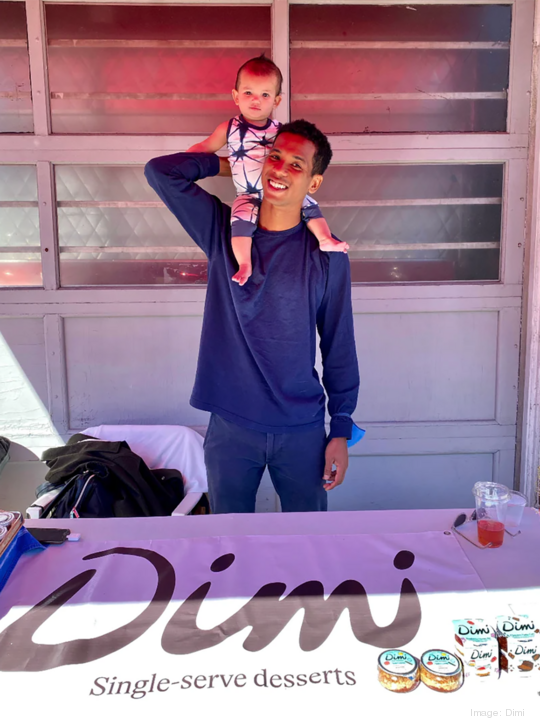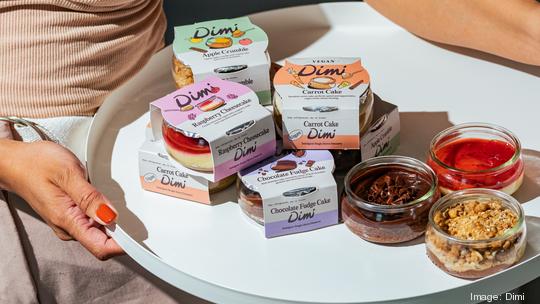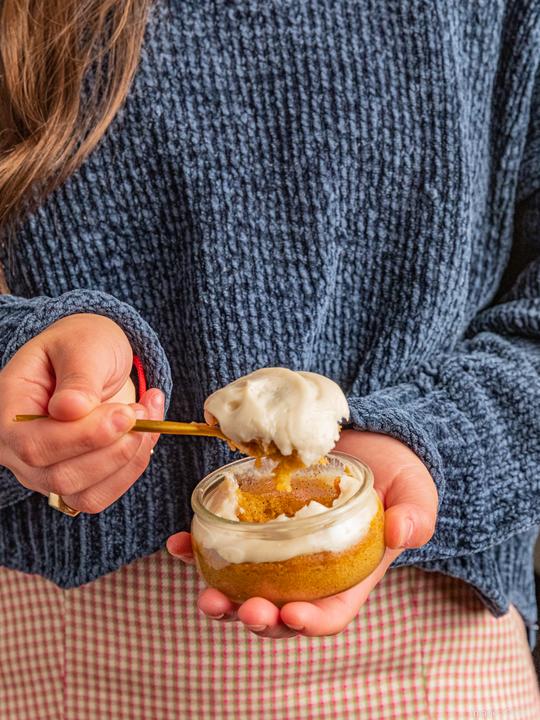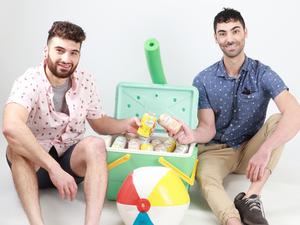
In the early days of the Covid-19 pandemic, Jeffrey Aziakou and his family found themselves, like so many others, eating in for every meal. Afterwards, they’d turn to staples like ice cream or cookies for dessert. Frustrated by the lack of ready-to-eat desserts in proportioned sizes, he decided to launch Dimi.
The brand officially debuted last summer and relaunched this August after undergoing some development changes at the Drexel Food Lab at Drexel University’s College of Nursing and Health professions.
Stocked in about a dozen stores including Kimberton Whole Foods, Riverwards Produce, Weavers Way Co-Op’s Chestnut Hill location and on the University of Pennsylvania campus, Aziakou is hopeful that 2023 will mark a year of $1 million in revenue
If he can accomplish that, his goal is to scale. Ultimately, Aziakou has big ambitions for Dimi – which is a take on the concept of diminishing portion size – to be a national brand representative of favorite American desserts.
The company also just launched with a local distributor which he hopes will push the brand into additional locations throughout the Mid-Atlantic.
“We want to be opportunistic about growing,” he said.
He knows it’s a long road to get there and that he still has much to learn before that kind of scale can happen. Aziakou, a graduate of the Wharton School at the University of Pennsylvania, where he earned his MBA, is using this time to do additional market research to inform how and where the brand will grow. That includes updates to products and new iterations.
Dimi currently offers five refrigerated desserts: apple crumble, raspberry cheesecake, vegan carrot cake, and both a traditional and gluten-free chocolate fudge cake. All are served in single-serve portions. The desserts, which are largely between 250 and 300 calories each, come in recyclable glass containers, which can also be heated for options like the apple crumble or chocolate fudge cake.

They can be eaten as is or dressed up with ice cream, whipped cream or sauces to create “restaurant adjacent experiences in the context of the home,” Aziakou said, adding that Dimi can last up to about a month in the refrigerator.
Desserts can be purchased individually at local stores or as two packs of six on the brand’s website. Two six packs retail for $89.99. As business grows, Aziakou is looking to drive down that price. Dimi ships to 48 states, but while it has the capability of direct to consumer, wholesale is its primary target and the vast majority – roughly 98% – of sales.
Having the desserts refrigerated was crucial. The idea is for them to be ready to eat and pre-portioned for moments when consumers want something unique, whether for an at-home date night, when entertaining or simply as a pick me up.

“What I was looking for was something effectively that could be the refrigerated equivalent to what ice cream is in the freezer and cookies are in the pantry, something that could last in your fridge from shop to shop, something that can find that balance between comfort and convenience,” Aziakou said.
The idea for Dimi came in part from Aziakou’s upbringing in France. Born in the United States to French immigrants – his mom is originally from Hong Kong and his dad from Benin, and both wound up in France – Aziakou spent about half of his childhood in France and half in the U.S. France is famous for its cakes and pastries and Aziakou was frustrated by the lack of similarly portioned desserts on the market in the U.S.
Aziakou was poised to tackle the challenge thanks to a background in the food industry, just not on the consumer packaged goods side. After graduating from Cornell University, he was a manager at Aldi, eventually working to expand the grocery chain into the Boston and New York markets. He later segued into the commodities business as a cocoa trader, selling to brands like Hershey, Mars and Nestle.
Eager for more, he pursued business school. Following Wharton and a stint consulting, Aziakou knew he wanted to create something of his own and so Dimi was born.
Rather than replicating the French concept, he wanted something rooted in American culture and “that can be a reflection of the American palate.”
He expects Dimi to add flavors in time, particularly ones that represent certain regions, and to make changes to existing flavors.

“Part of what we're trying to do is get customer feedback,” he said. To that end, Aziakou is focused on “the ground game and in grassroots activations,” undertaking some 150 events throughout the fourth quarter of 2022.
That includes highly trafficked holiday events like Eastern State Penitentiary’s Halloween Nights, which wrapped up recently, and the forthcoming Christmas Village in Center City.
Keeping business local as it grows is also important. The brand is based in Philadelphia and Dimi is manufactured in Pennsylvania. Aziakou has even co-invested in specialized equipment for manufacturing. Currently Dimi can produce up to 1,500 units a day.
The business has been funded by a mix of Aziakou and his wife’s capital, as well as an undisclosed amount from family and friends. It currently has 10 part-time and one full-time employee.
Hitting $1 million in revenue, as is the goal in 2023, will allow him to seek other forms of capital should he wish, since that figure is often a benchmark for institutional sources, he said.
At the end of the day, he wants Dimi to “help people indulge responsibly,” Aziakou said. “And success for us is really helping people celebrate me moments and we moments.”
Who is the primary Dimi consumer?
We have a couple hypotheses. Our two hypotheses center around two distinct cohorts of folks. One would be me or folks like me, which is a busy parent. My wife and I both work. When you have a kid and you're both active professionals, figuring out who's going to cook dinner is stressful. … Busy professionals, busy adults, people who are trying to find that balance of convenience and quality and comfort, that is really compelling to us. And then college students. If you're a college student, you don't have a kitchen in your dorm room and you might want a taste of nostalgia.
What is your primary sales strategy?
Omnichannel really matters and for us – we want to play in as many channels as possible, but with discipline. … We want to be disciplined and grow incrementally first in the Philadelphia area, and then our near-term objective is to scale to the Mid-Atlantic into markets like Baltimore and D.C., South Jersey, Delaware, etc.







